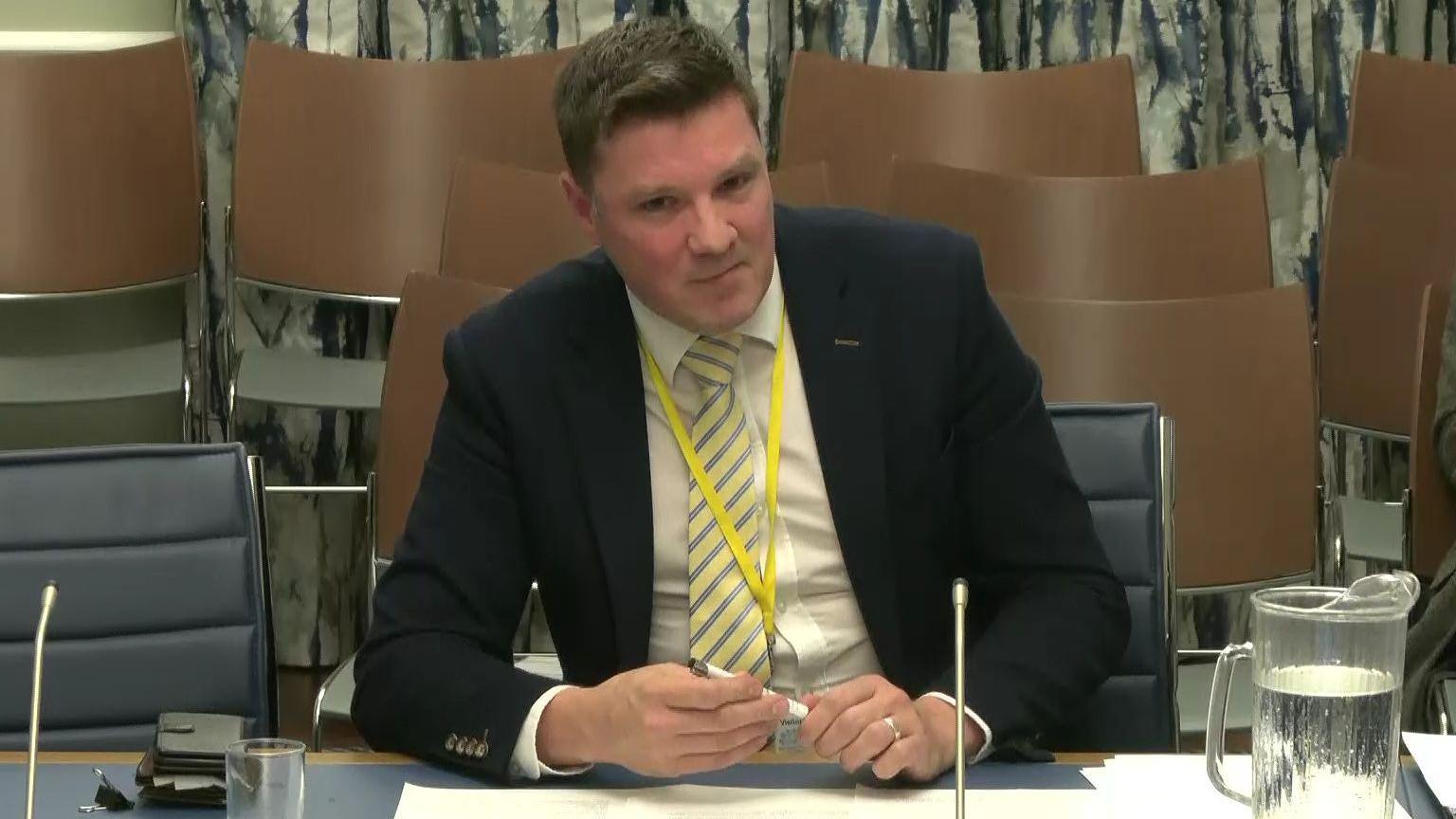Easier to reveal sexuality than faith, claims evangelical group

The teaching of Relationships and Sexuality Education in schools is being examined by a Stormont committee
- Published
Some young people feel that "it is much more difficult now to come out as an evangelical Christian in school than it is to come out as LGBT."
That is according to David Smyth from the Evangelical Alliance Northern Ireland (EANI).
But he told Stormont assembly members Christians did not want to "fight a culture war" over how Relationships and Sexuality Education (RSE) is taught in schools.
Assembly members (MLAs) on Stormont's Education Committee are carrying out an inquiry into RSE in Northern Ireland.
The Evangelical Alliance is a Christian organisation which represents a range of churches and individuals.
Mr Smyth also said: "I do think we need to be careful not to create new secular blasphemies."
"Is it secular blasphemy to believe that a man cannot biologically become a woman?" he continued.
Mr Smyth told the committee that while the Evangelical Alliance had some "concerns" around the content of RSE, it was not a case of "religion versus RSE".
"We're not looking to fight a culture war where children are the casualties," Mr Smyth said.
"There's so much common ground between Christians and non-Christians when it comes to the teaching of healthy relationships, consent, preventing violence against women and girls, sexualisation."
But he said that parents had concerns about some of what they had read in the media about what was taught in RSE.
'Scientifically inaccurate material'

David Smyth gave evidence to Stormont's Education Committee
He referenced a previous report from the Conservative MP Miriam Cates on RSE in schools in England and Wales.
"This report details some examples of age-inappropriate material being taught in RSE on issues like sexual practices which may be dangerous or even illegal, like choking or chem sex," he said.
He also said that some RSE lessons contained "scientifically inaccurate material which confuses and conflates biological sex with gender identity, and teaches that children can choose to become a man or a woman, or both or neither".
"There are some specific areas where the views of evangelical Christians, and many Catholics and Muslims are very distinctive, for example abortion," he continued.
It is set to be compulsory for all post-primary schools in Northern Ireland to teach pupils about access to abortion and prevention of early pregnancy.
'State schools are not Sunday schools'
That is a result of former Northern Ireland Secretary Chris Heaton-Harris laying regulations on RSE in Parliament in 2023.
"I do sense some suspicion in some quarters that Christian ethos equates to indoctrination or brain-washing, maybe for good reason in the past in certain instances," Mr Smyth said.
"But good RSE is about helping young people understand and think well about relationships, sex, identity and how this plays with their own moral beliefs and values.
"State schools are not Sunday schools."
During questions the committee chair, Alliance MLA Nick Mathison, said Mr Smyth seemed to be "expressing a concern that there are teachers somewhere that are trying to effectively change children's minds to push an agenda of some sort".
"I think when it comes to something like the teaching of something like the law on abortion or differing sexual identities our concern is just that there is space when that is taught and how that is taught, that that is not ideologically driven," Mr Smyth replied.
"It's that space that we would want for all young people, to be able to respond to the facts that are taught," he continued.
Earlier the committee heard from Dr Susan Lagdon from Ulster University and Dr Julie Ann Jordan on their research into violence against women and girls in Northern Ireland.
Dr Lagdon said that violence against women and girls was "a significant issue" but many people in Northern Ireland were not aware of terms like coercive control.
"This relates to patterns of negative and harmful behaviour which can ensue within intimate relationships with the purpose to dominate, intimidate or threaten a person into submission," she said.
"Coercive control is a term which captures the reality of abuse which many face.
"It's not a one-off incident and is not always physical in nature."
Coercive control is a specific offence in Northern Ireland.
But Dr Lagdon said that, overall, the teaching of "prevention programmes addressing partner violence" in schools in Northern Ireland was "inconsistent".
Related topics
- Published10 October 2024

- Published17 October 2024
